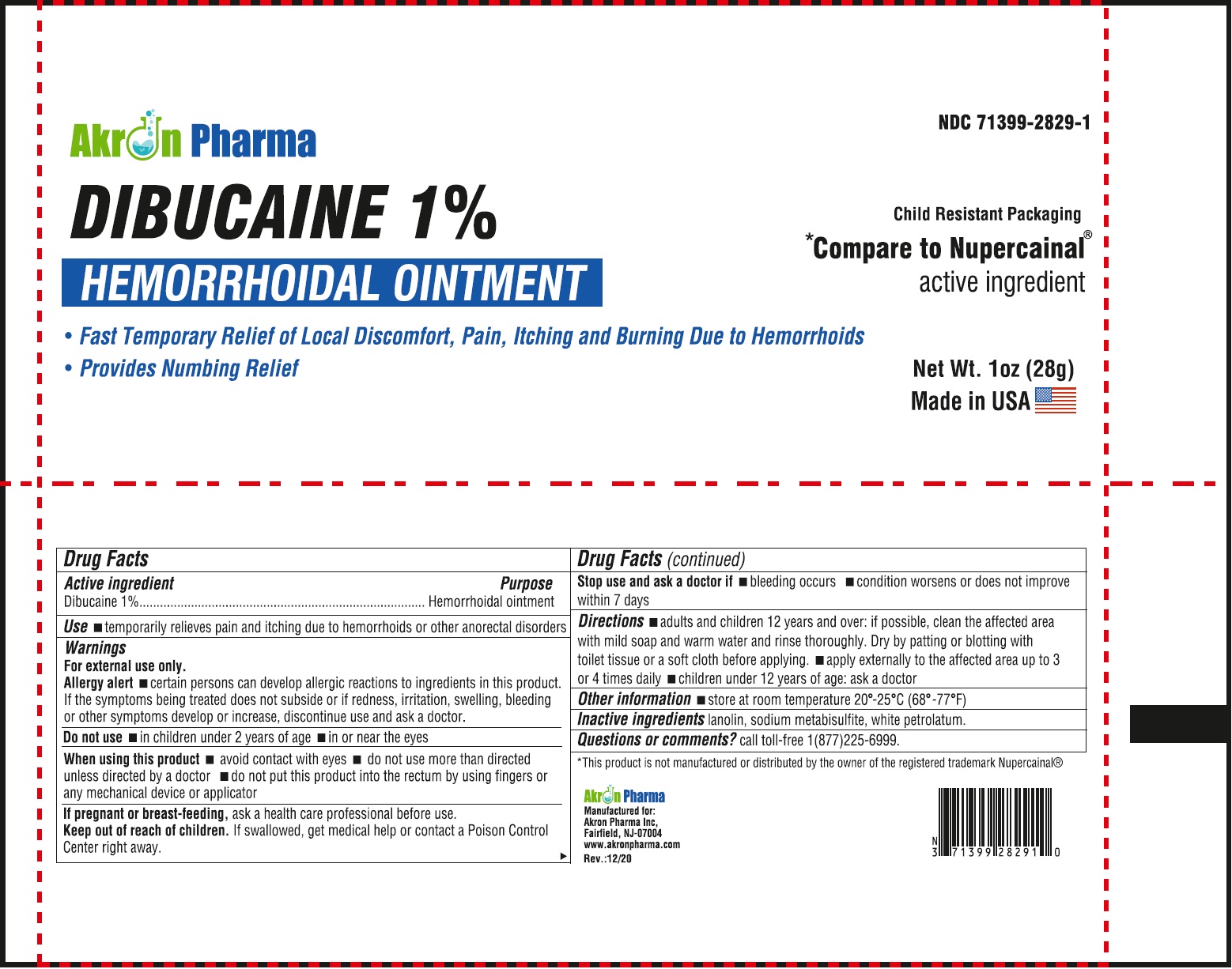Dibucaine
Generic name: dibucaine topical
Brand names: Dibucaine, Nupercainal, Rectacaine
Dosage form: topical ointment (1%)
Drug class: Topical anesthetics
Medically reviewed by A Ras MD.
What is dibucaine?
Dibucaine is used to treat signs of hemorrhoids or rectal irritation. It is used to ease the pain caused by sunburn and skin irritation.
Before taking dibucaine, tell your doctor:
For all patients taking dibucaine If you are allergic to dibucaine; any part of this medicine; or any other drugs, foods, or substances. Tell your doctor about the allergy and what signs you had.
Children: If your child is younger than 2 years of age. Do not give dibucaine to a child younger than 2 years of age.
This medicine may interact with other drugs or health problems.
Tell your doctor and pharmacist about all of your drugs (prescription or OTC, natural products, vitamins) and health problems. You must check to make sure that it is safe for you to take dibucaine with all of your drugs and health problems. Do not start, stop, or change the dose of any drug without checking with your doctor.
What are some things I need to know or do while I take dibucaine?
For all uses of dibucaine:
- Tell all of your health care providers that you take dibucaine. This includes your doctors, nurses, pharmacists, and dentists.
- Do not use longer than you have been told by the doctor.
- This medicine may cause harm if swallowed. If dibucaine is swallowed, call a doctor or poison control center right away.
- Tell your doctor if you are pregnant or plan on getting pregnant. You will need to talk about the benefits and risks of using dibucaine while you are pregnant.
- Tell your doctor if you are breast-feeding. You will need to talk about any risks to your baby.
Skin:
- Do not use dibucaine on raw or broken skin. Do not use over large areas of skin without talking with the doctor.
How is dibucaine best taken?
Use dibucaine as ordered by your doctor. Read all information given to you. Follow all instructions closely.
All products:
- Do not take dibucaine by mouth. Use on your skin only. Keep out of your mouth, nose, and eyes (may burn).
- Clean affected part before use. Make sure to dry well.
Skin:
- Wash your hands before and after use. Do not wash your hands after use if putting this on your hand.
- Put a thin layer on the affected skin and rub in gently.
- It may be covered with a bandage or dressing.
Rectal:
- Wash your hands before and after use.
- Do not put dibucaine into the rectum by using your fingers or any type of applicator. Follow what the doctor has told you to do.
What do I do if I miss a dose?
- If you use dibucaine on a regular basis, put on a missed dose as soon as you think about it.
- If it is close to the time for your next dose, skip the missed dose and go back to your normal time.
- Do not put on 2 doses or extra doses.
- Many times dibucaine is used on an as needed basis. Do not use more often than told by the doctor.
What are the side effects of dibucaine that I need to call my doctor about immediately?
WARNING/CAUTION: Even though it may be rare, some people may have very bad and sometimes deadly side effects when taking a drug. Tell your doctor or get medical help right away if you have any of the following signs or symptoms that may be related to a very bad side effect:
- Signs of an allergic reaction, like rash; hives; itching; red, swollen, blistered, or peeling skin with or without fever; wheezing; tightness in the chest or throat; trouble breathing, swallowing, or talking; unusual hoarseness; or swelling of the mouth, face, lips, tongue, or throat.
- Very bad skin irritation.
- Swelling.
- Bleeding from rectum or rectal pain.
What are some other side effects of dibucaine?
All drugs may cause side effects. However, many people have no side effects or only have minor side effects. Call your doctor or get medical help if you have any side effects that bother you or do not go away.
These are not all of the side effects that may occur. If you have questions about side effects, call your doctor. Call your doctor for medical advice about side effects.
You may report side effects to the FDA at 1-800-332-1088. You may also report side effects at https://www.fda.gov/medwatch.
If overdose is suspected:
If you think there has been an overdose, call your poison control center or get medical care right away. Be ready to tell or show what was taken, how much, and when it happened.
How do I store and/or throw out dibucaine?
- Store at room temperature. Do not freeze.
- Keep all drugs in a safe place. Keep all drugs out of the reach of children and pets.
- Throw away unused or expired drugs. Do not flush down a toilet or pour down a drain unless you are told to do so. Check with your pharmacist if you have questions about the best way to throw out drugs. There may be drug take-back programs in your area.
Label
PRINCIPAL DISPLAY PANEL

